Omron’s Enabling Technologies for Semiconductor Manufacturing
January 11, 2024
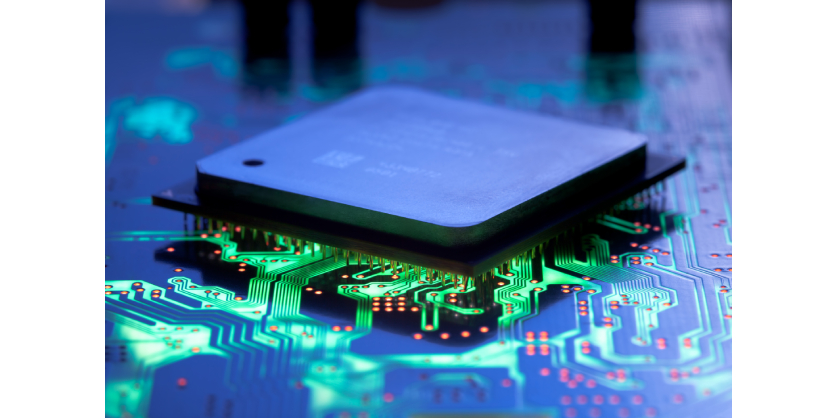
By Omron Automation
Omron has a broad portfolio of technologies that help enable semiconductor manufacturing
With semiconductor manufacturing booming in the Americas, fabrication facilities are on the lookout for innovative ways to quickly produce high-quality wafers and gain a competitive advantage. Omron has the solutions to make that happen. Their portfolio of products enables semiconductor manufacturers to succeed in this industry. Some examples of these technologies are Sysmac Studio Software, 1S Drive motion, and Microhawk vision.
Sysmac Studio
Sysmac Studio software is a single integrated development environment that enables users to design, commission, and improve the entire Sysmac ecosystem in a single location. The software empowers users to minimize time to market through program designs, reduce installation costs during commissioning, and boost productivity after a design has been deployed on the plant floor.
Some of the main features of Omron’s Sysmac Studio are 3D Simulation, which imports and controls CAD data to simulate a machine using standard ladder logic, structured text, and function block commands. Sysmac Studio can fully simulate HMIs, controllers, and machine operations in one software. This fuels the reduction of commissioning of new equipment and upgrading old equipment while building a foundation for digital twins. The PLC Logic Simulation, which simulates ladder logic and/or structured text programs to test the program for the actual machine.
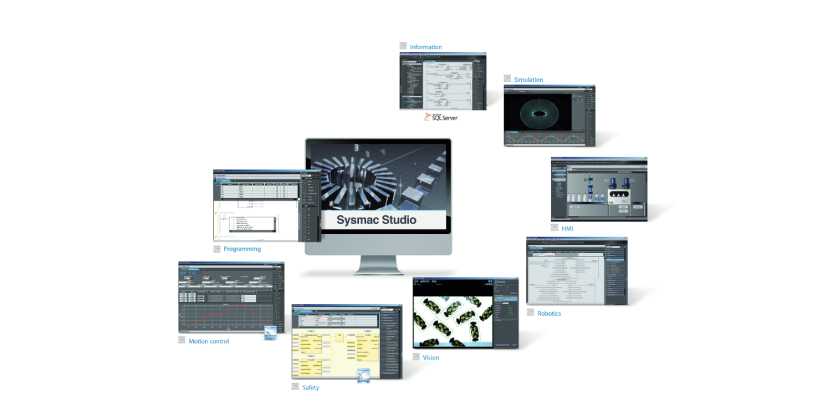
PLC Program Simulation does not require any hardware connections. The HMI Logic Simulation allows the NA HMI screens to be simulated in Sysmac Studio, which helps with the design of operator screens. The variables used for the PLC program can be linked with the NA HMI buttons or data displays. HMI Program Simulation does not require any hardware connection. The Motion Simulation similarities complete system motion. More than 50 PLC open and proprietary motion function blocks are available in the controller and can be used to develop single, synchronous, and coordinated motion applications. A rich graphic cam editor includes multiple interpolation methods as standard. Motion Program Simulation does not require any hardware connection.
Automatic Data Playback is a feature that converges data, video, program structure, and ladder logic. All playback is time-synced, and event-triggered to allow local and remote team members to act quickly and accurately diagnose issues without interrupting production. It is backwards compatible, meaning that no matter what version of Sysmac Studio is being used, the software is compatible with all firmware versions of products in the Omron portfolio. This dramatically extends product life in the field. Additionally, proprietary program code protection ensures that Sysmac Studi function blocks can be locked and customized to decrease the risk of stolen intellectual property and easily facilitate version control.
Sysmac Studio is well suited for semiconductor manufacturing because it is a single software environment. It integrates logic control, safety, motion, drives, robotics, HMIs, vision, advanced sensing, and information systems into a single environment, which allows programs to leverage simplified program architecture for faster development. Furthermore, it is IEC611-31-3 compliant, meaning third-party compatibility further accelerates program time while allowing minimum impact to existing automation infrastructure.
1S Drives
Omron’s industrial servos are designed to meet present and future machine requirements for semiconductor manufacturing. The 1S servo system optimizes the full machine manufacturing cycle, from machine design to installation to commissioning. In operation, they help maximize machine production and shorten maintenance time.Servo drives and motors are an integral and important part of the Omron solution for semi. The 1S servos provide accuracy through high resolution feedback, a wide range of servo motors, and advanced tuning.
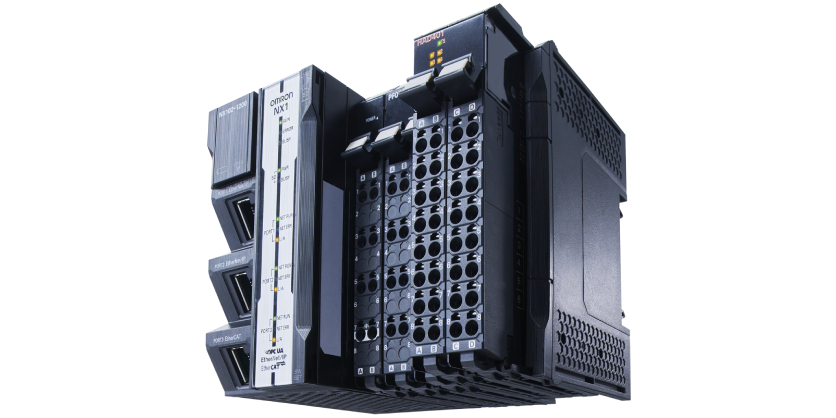
The 1S servo drive from Omron is a compact, high performance servo drive designed for motion control applications. It offers advanced features, such as high-speed and high-precision control, along with built-in safety functions. The 1S servo drive is known for its flexibility, scalability, and ease-of-use, making it suitable for a wide range of industrial automation applications. It offers a wide range of drives and motors applicable for almost any application. The 1S was designed with many new features.
Panel efficiency has been improved by having the power connections on the top and all motor connections brought out the bottom of the drive. Side by side mounting is allowed to save space and drives up to 3kW are the same height to utilize space requirements. Omron has also built a removable terminal block into the front to eliminate the need for an external terminal block. Omron’s 1S battery-less encoder offers several advantages compared to traditional encoders that require batteries.
Some of the key advantages include:
- Maintenance-free – the battery-less encoder eliminates the need for battery replacement or maintenance, which reduces downtime and associated costs.
- Environment-friendly – by eliminating the need for batteries, the 1S encoder reduces waste and contributes to a more sustainable and eco-friendly operation.
- Increased reliability – battery-less encoders are not susceptible to battery failure or leakage. This ensures consistent and reliable operation over time.
- Cost-effective – with no batteries to replace, the 1S encoder reduces ongoing operational costs, making it a cost- effective solution long-term.
- Simplified installation – the battery-less encoder eliminates the need for wiring connections related to the battery power, simplifying the installation process and reducing complexity.
Overall, the battery-less encoder from Omron provides a reliable, cost-effective, and environmentally friendly solution for motion control applications. The 1S servo drive is well-suited for the semiconductor industry because of its advanced features and capabilities.
Here is how it fits into the semiconductor industry:
- Precision and accuracy – the 1S servo drive offers high-speed and high-precision control, which is crucial in semiconductor manufacturing processes that require precision positioning and motion control.
- Flexibility – the 1S servo drive is highly flexible and can be easily integrated into various semiconductor equipment, such as wafer handling systems, pick-and-place machines, and robotic arms.
- Compact design – the compact size of the 1S servo drive allows for space-saving installations, which is particularly important in semiconductor manufacturing facilities where space is often limited.
- Safety features – the 1S servo drive includes built-in safety functions, ensuring the protection of operators and equipment during semiconductor manufacturing operations.
- Easy integration – the 1S servo drive is designed for easy integration with other automation components, such as PLCs and HMIs, allowing for seamless communication and control within the semiconductor production line.
Overall, the 1S servo drive from Omron provides the semiconductor industry with a reliable, precise, and flexible motion control solution that enhances productivity and efficiency in semiconductor manufacturing processes.
Advanced machine vision controllers and cameras
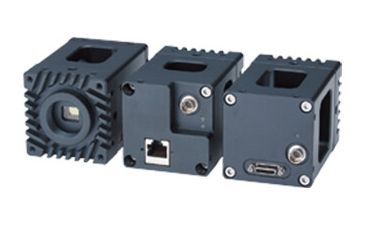
Omron’s machine vision solutions offer semiconductor manufacturers a multitude of solutions based on their requirements. From industrial cameras to smart cameras and fully constructed vision systems with A.I. functionality, they have the solution that suits each application. Machine vision plays a vital role in front-end wafer inspection. Machine vision is employed to inspect wafers for defects, such as particles, scratches, pattern deviations, and contamination. These systems utilize advanced imaging techniques, pattern recognition algorithms, and AI to analyze the captured images and identify any abnormalities.
By automating the inspection process, machine vision enables high-speed and high-precision detection of defects, ensuring the production of high-quality wafers while minimizing the risk of faulty chips. This helps semiconductor manufacturers maintain stringent quality standards, improve yield rates, and enhance overall production efficiency. Omron’s machine vision portfolio offers unparalleled integration with automation equipment as well as scalability from the industrial camera to the fully constructed vision system. Omron offers semiconductor manufacturers a complete range of products with the most functions and capabilities than any other machine vision supplier on the market.
All of Omron’s machine vision products offer the highest quality products for manufacturing and system design for the semiconductor industry. Omron’s industrial cameras feature multiple camera interfaces, including GigE Vision, USB3 Vision, and CoaXPress. Omron industrial cameras also feature SWIR sensors that allow semiconductor companies to see through the wafers and other materials to view the circuit beneath.
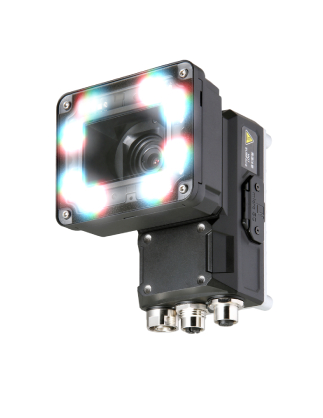
Ease-of-use and power best describe Omron’s smart camera offering, The MicroHAWK Smart Camera features a multitude of smart cameras designed for embedded vision and ease-of-use. WIth the AutoVISION software platform, engineers can set a tool up in three simple steps. The FHV7 is Omron’s most powerful and highest performing smart camera; it features a full suite of tools ready to tackle any machine vision application it comes across.
Omron also offers pre-built vision systems such as the FH Series, which offers multiple levels of performance, and is natively compatible with the Sysmac Platform. It features AI capabilities exclusive to Omron. Omron’s machine vision portfolio offers a comprehensive solution that addresses the various challenges in the semiconductor industry. With its advanced imaging technology, precise inspection algorithms, and robust hardware, Omron’s machine vision can detect and classify defects, measure critical dimensions, and verify alignment of semiconductor components and processes. It enables high-speed and high-accuracy inspection, reduces the risk of faulty chips, and improves overall production yield.
To summarize, Omron’s machine vision’s flexibility and scalability allows for seamless integration into existing semiconductor manufacturing systems by providing real-time monitoring, data analysis, and process optimization. By leveraging Omron’s machine vision, semiconductor manufacturers can enhance quality control, increase productivity, and achieve cost-savings, ultimately driving innovation and competitiveness in the industry.
Endnotes
More Information
Interested in learning more about Omron’s solutions for the semiconductor industry?
Check out Omron’s Semiconductor Manufacturing: From Front-End Inspection to Finished



